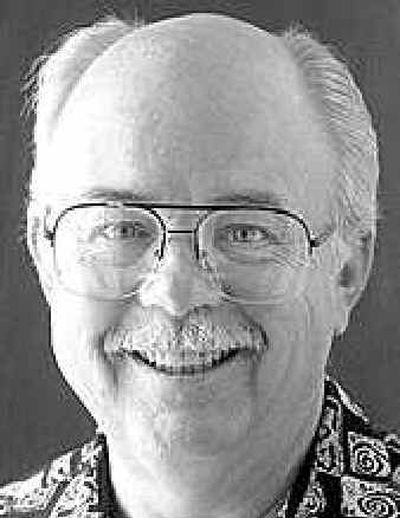Labeling helps keep us closed to spiritual growth

The first time I was called a heretic, I did the name-calling.
I was at a men’s spiritual renewal event where all the music was what is generically called “praise music.” I enjoy some of it, but some has questionable theology, and some is boring.
In a speech partly tongue-in-cheek, I identified myself as a “closet heretic.” I knew some of the men would agree since I was questioning an important part of worship for most of them.
But I wanted them to know the music was a barrier to me as I tried to be open to God’s grace.
So I labeled myself first. It didn’t stop others from painting me as heretical.
Heresy seems to be in the air again. Its context now goes beyond church music, and the stakes seem higher. The controversy over homosexuality within my denomination flared up again at the just-concluded General Conference of the United Methodist Church.
On the last day of the conference, 95 percent of the delegates passed a resolution that stated: “As United Methodists we remain in covenant with one another, even in the midst of disagreement, and reaffirm our commitment to work together for our common mission of making disciples of Jesus Christ throughout the world.”
I am very pleased — and relieved — to see this statement. It reflects what I’m told was a strong effort by most delegates to treat one another with respect and love.
This effort was difficult at times. The church delegates had tense debates about the conflicts within both our hearts and our institutions regarding homosexual people and pastors. Sometimes that debate was acrimonious.
I hope we are able to live out that resolution in our daily lives. It won’t be easy!
I don’t worry so much about differences of opinions on homosexuality. What deeply troubles me is that supposedly faithful people on all sides allow themselves to be stampeded by fears that may or may not even relate directly to their faith. We all tend to misuse Scripture to mask underlying fears.
For years, I’ve heard and read reports that include words like “heresy,” “heretic” “and “unfaithful.” They are aimed at people whose scriptural interpretations are held suspect.
In turn, the “heretics” call their own detractors “literalists” or “fundamentalists.”
Sticks-and-stones name-calling is childish, graceless and fearful. These are all fear-driven words.
Fears drive persons to feel and say things that are emotionally harmful to others.
Fears are also unfaithful to the higher calling we have from God. Fear means we do not live in ways that honor Jesus’ call for disciples to love each other.
This debate on homosexuality has had fearful, hateful moments. We shame ourselves in those times.
Heresy rears its ugly head in moments like these. Historically, charges of heresy have been leveled at countless people within the Christian Church as well as in other faith traditions.
By definition, heresy “is a belief, held by a member of a church, that denies or seriously distorts a central teaching of that community” (David Gouwens, A New Handbook of Christian Theology).
Many people throughout history have been labeled “heretics” in formal and informal ways, including Galileo and Luther, to name just two. Oh, yes, I recall Jesus was also thought to be a heretic.
In too many instances to be mere coincidence, heretics — especially those who were put to death for their beliefs — have played a very crucial role in the ongoing development of human spirituality. Perhaps it’s time to consider that heresy and heretics are not to be feared.
Heresy is a spiritual challenge we would do well to listen to carefully.
Certainly there are ideas that run completely counter to traditional orthodoxy, be that orthodox Christian, Jewish, Buddhist, Muslim or whatever. But to label the bearer of those ideas as a “heretic” both dismisses the idea and demonizes the person.
To dismiss a new idea, we may also dismiss one of the “new things” God promised to do in Isaiah 43:19 and Revelation 21:5.While these verses are specific, the underlying truth is that God is able to do new things anytime God chooses.
When we demonize someone with the label “heretic.” we could easily dismiss an encounter with an unrecognizable angel of God. When we dismiss the angel, we summarily disregard that angel’s message to us.
People tend to cry “heresy” and “heretic” in religious circles or “traitor” in political circles. Their assault implies the same thing: Someone advocates an idea that runs a little (or a lot) askew of the common wisdom held by a certain group of people. The labels sound fearful because they are born of fear. What do they really need to protect?
If we truly believe God is for us, why do we fear ideas and people that challenge us to consider that God still does new things among us?
God doesn’t fear “heresy.” Why do we?
It just may lead to spiritual growth.